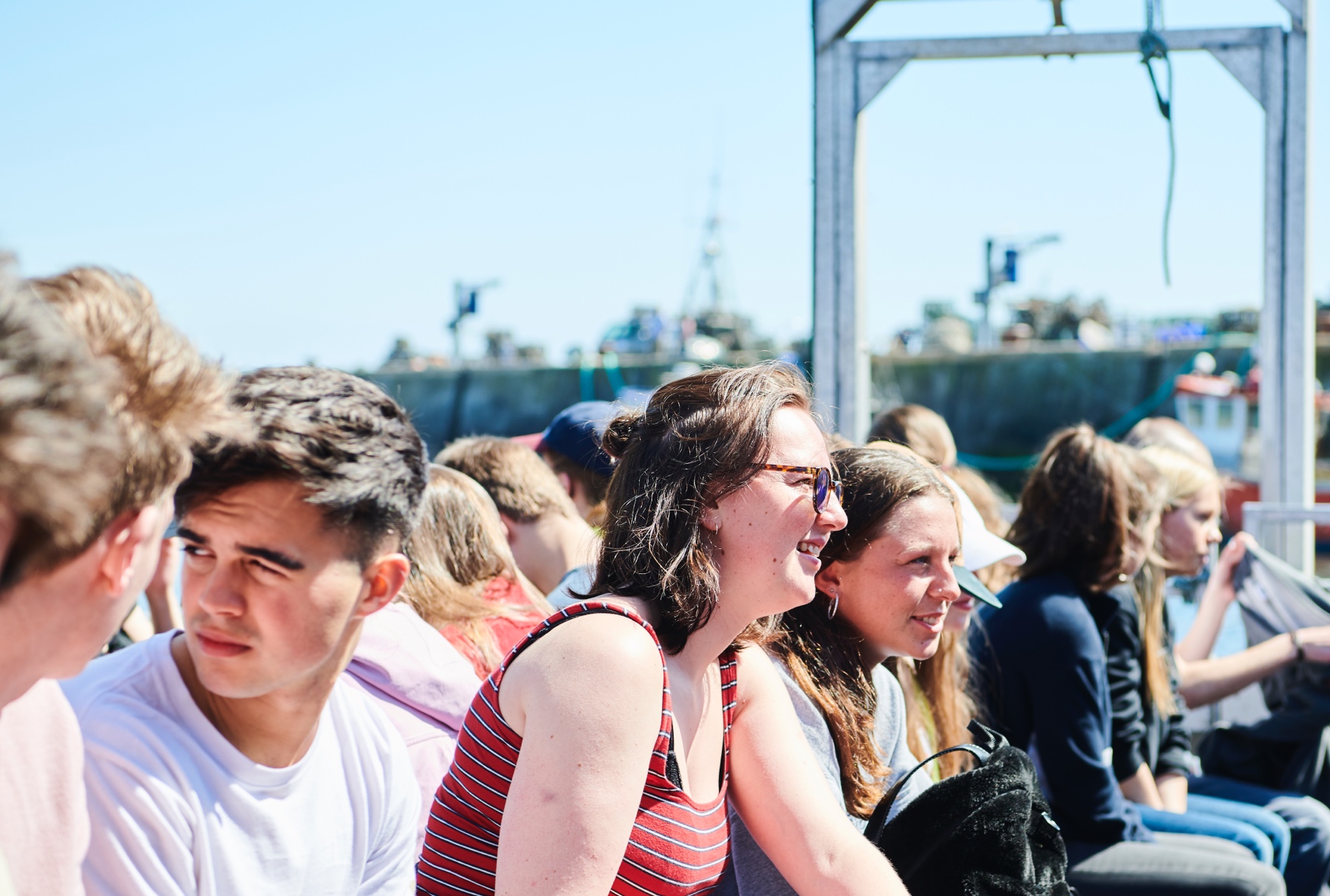Field Courses
The ideal location for your undergraduate, MSc or A Level field trips.
About
The Dove Marine Laboratory offers an excellent base from which to explore the wide range of marine and terrestrial habitats.
We have all the facilities, equipment and local expertise to ensure your field course is both memorable and enjoyable.
We also provide undergraduate and master’s level field teaching for our own students at the Dove.
Facilities
We can provide high quality academic teaching for your courses at an additional cost. The RV Princess Royal is available for charter to accommodate your teaching.
For professional CPD courses for practitioners and managers in the environmental sector, the Dove offers an excellent facility from which to run courses and workshops.
Accommodation
Find out more about our accommodation here.
Get in touch
Contact us to discuss your needs and allow us to give you a quote for your course or workshop.
If you are interested in undertaking a short course in marine biology with a field course component, please visit our Delve Deeper pages.
Sites
The juxtaposition of pristine and polluted sites in easy reach of the Dove Marine Laboratory means that a range of biodiversity levels and anthropogenic impacts can be easily studied.
This is essential for the development of the professional skills required by marine and environmental scientists.
The region
For much of the coast north of Tynemouth and the Dove, all the way to the Scottish borders, the Northumberland coastline offers stunning windswept beaches, rocky platforms, sand dunes, saltmarsh, mudflats and sheer cliffs. Much of this coastline has received national and international conservation designations for the rich marine life that it supports.
With its history of coal-mining, ship-building, chemical and other industry, there are many sites in the region where students can learn to understand human impact on the natural environment, how this can be managed and minimised.
Newcastle students and visiting groups explore offshore sites on board the RV Princess Royal.
The Farne Islands
With its internationally important populations of grey seal, and breeding seabirds, the Farne Islands are a must for vertebrate behaviour courses.
Students are able to get very close to the animals, and the location also offers fantastic diving opportunities.
Budle Bay and Holy Island
Budle Bay and Holy Island support important mudflat systems and internationally important sand dunes. The area is also a Ramsar site, Site of Special Scientific Interest, a Special Protection Area, and part of the European Marine Site.
It offers a number of features of geological interest, including:
- evidence of sea-level rise since the last ice-age
- exposure through limestones and shales of the Lower Carboniferous
- the Whin Sill igneous intrusion, iconic to this region
Alnmouth and Druridge Bay
Alnmouth offers a unique opportunity to investigate fragile and fascinating saltmarshes. Druridge Bay, further south, offers a large stretch of diverse coastal sand dune and a system of saline lagoons.
Rocky intertidal platforms
A range of rocky intertidal platforms including Beadnell, Amble, St Mary’s Island, and Cullercoats lets you build intertidal survey skills and appreciate the role of shelter and exposure on marine communities.
The Durham coast
Visiting the Durham Coast including Easington, Blackhall and Hordon allows you to study of the impact of colliery spoil dumping on intertidal communities. It also allows you to study the concepts of succession and recovery. Dumping has ceased for varied periods on each of these sites, giving a measurable timeline of recovery.
Tynemouth and Black Middens
Estuaries and mudflats are easily accessible with a short walk from the Dove Marine Laboratory to Tynemouth and Black Middens.
Facilities
The Dove Marine Laboratory offers excellent facilities for carrying out ecological marine research, and for studying at undergraduate level. We also hire out our teaching and research facilities.
Aquarium
This open-plan aquarium with a flow through seawater system takes water from Cullercoats Bay. It is then filtered through sand, pumped into the building and stored in two 60 tonne capacity storage tanks.
The aquarium has large wet benches with supplies of running sea water and air. You can set up variable short-term experimental designs for small tanks.
Our fixed tanks include aquaria deep-water tanks (~3m), ideal for fish behaviour studies. We also have shallow tanks for the maintenance and husbandry of coastal and shore species.
The aquaria facilities at the Dove complement those at the Ridley Research Laboratories at the University's main campus.
Classrooms
The Dove has two large classrooms, the Buchanan Room and the Evans Room.
In addition to meeting, teaching and workshop facilities, we also provide:
- wireless access
- flipcharts
- wall-mounted computer-linked flatscreens for audio-visual presentations
- stationary
- catering provision
- reception support
Laboratory facilities
We have laboratory facilities for ecological research, with wet bench and preparation rooms for biological sample processing.
Our laboratory facilities include:
- freezers ( -20°C)
- muffle ovens
- weighing rooms
- sediment analysis sieves
- a range of microscopes
- physiology-pressure chambers
- microbiology facilities, including autoclaves and incubation chambers
We have a suite of experimental cabinets (1m x 1m x 2.5m) designed for smaller tank experiments which require the control of temperature (3-20°) and photoperiod.
Standard field equipment for surveys and field sampling is available for class sizes up to 50 students. Equipment includes binoculars, quadrats, sieves, shore-profiling equipment, box core, trowels, callipers, and plankton nets.
Expertise and high quality technical support is always on hand, and we have FlowCAM digital imaging for plankton sample analysis and ballast water research.
